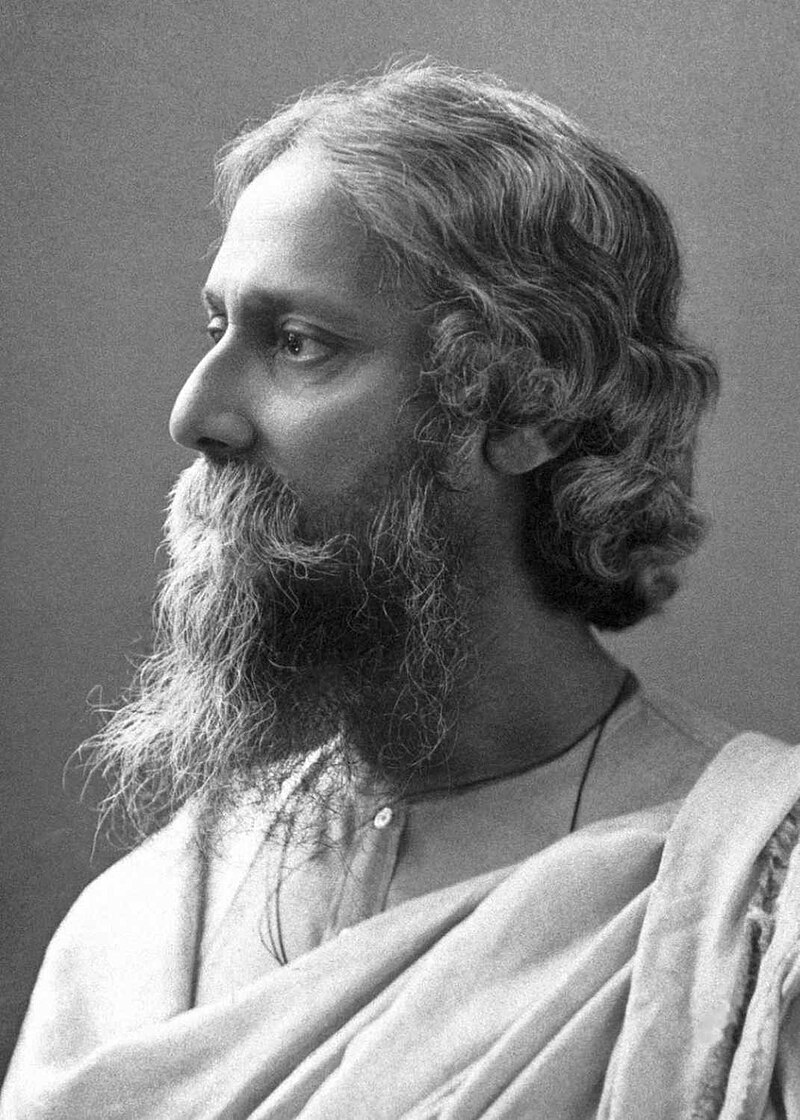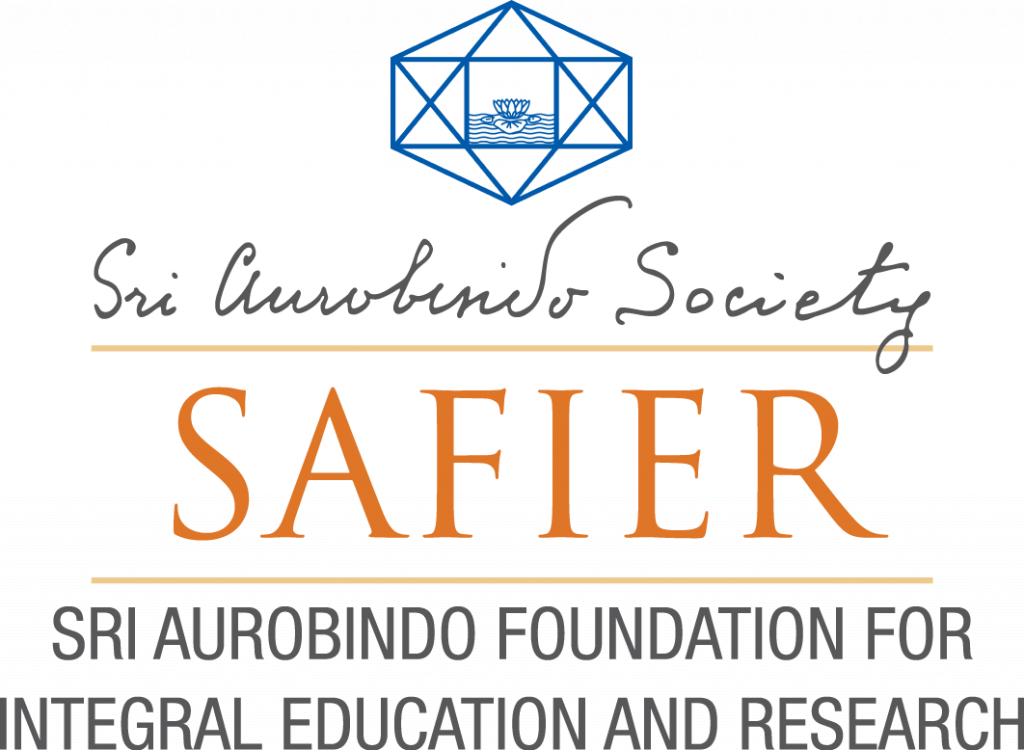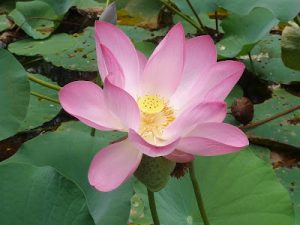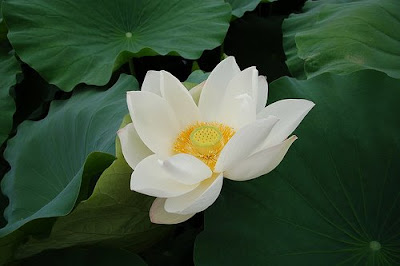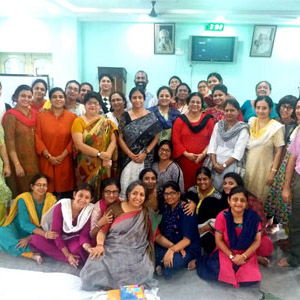The Role of Flowers and Nature
“Be like a flower. One must try to become like a flower: open, frank, equal, generous and kind.”
– The Mother
Report
Upcoming Events
“Flowers speak to us when we know how to listen to them, it is a subtle and fragrant language.”
– The Mother
Across time and contexts, people have connected to the beauty, colours, fragrance, and texture of flowers, but even more so to an indefinable quality that goes beyond the mere exterior form. This is perhaps why across cultures people have used flowers in worship, rituals, weddings, funerals, or any important event in their lives.
The Mother and Sri Aurobindo repeatedly emphasised the value of flowers, the immeasurable beauty they add to the world, and all the ways they can enrich our lives. The fact that the center of Sri Aurobindo’s own symbol is a lotus is an indication of the immense significance of flowers. The Mother has revealed the spiritual significance of many flowers, and spoken about their many qualities and all that we can learn from them. She even suggested looking at a beautiful flower as a way to overcome pain.
As a species, we are evolutionarily designed to be outdoors and in nature, that is our natural environment. In fact our minds allow us to develop a more conscious relationship with nature than any other species. Nature is where all the parts of our being most come alive. Our mind is at peace, our senses awakened, our body has freedom to run and roam, climb and dig, swim and soak in the sunlight. The many benefits of being in nature are increasingly well-documented by science:
- Builds confidence
- Improved mental health
- Promotes creativity and imagination
- Teaches responsibility
- Provides rich stimuli that refine the senses
- Physical fitness
- Curiosity and wonder
- Reduces stress, fatigue, anxiety
However, flowers and nature have a much deeper significance beyond these commonly known benefits. If we are sensitive and receptive, they can teach us much through their presence and example:
“Flowers teach us the charm of silence and thus the self-giving which demands nothing in return.”
“I have noticed a first rudiment of the psychic presence and vibration in vegetable life, and truly this blossoming one calls a flower is the first manifestation of the psychic presence.
The psychic is individualised only in man, but it was there before him; but it is not the same kind of individualisation as in man, it is more fluid: it manifests as force, as consciousness rather than as individuality.
Take the rose, for example; its great perfection of form, colour, scent expresses an aspiration and a psychic giving. Look at a rose opening in the morning at the first touch of the sun, it is a magnificent self-giving in aspiration.”
“The best way of opening yourself to the profound influence of flowers is to love them.
If you can have a soul-contact with them, that would be perfect.
Love of flowers is a valuable help in finding and uniting with your own soul.”
“Since flowers are the manifestation of the psychic in the vegetal kingdom, love of flowers would mean that one is drawn by the psychic vibration and consequently by the psychic in one’s own self.
When you are receptive to the psychic vibration, that puts you in a more intimate contact with the psychic in your own self. Perhaps the beauty of flowers too is a means used by Nature to awaken in human beings the attraction for the psychic.”
“Have you ever watched a forest with all its countless trees and plants struggling to catch the light-twisting and trying in a hundred ways to be in the sun? That is precisely the feeling, of aspiration in the physical-the urge, the movement, the push towards the light. Plants have more of it in their physical being than man. Their whole life is a worship of light.”
“The movement of love is not limited to human beings and it is perhaps less distorted in worlds other than the human world. Look at the flowers and trees. When the sun sets and all becomes silent, sit down for a moment and put yourself into communion with Nature. You will feel, rising from the earth, from below the roots of the trees and mounting upward and coursing through their fibers, up to the highest outstretching branches, the aspiration of an intense love and longing-a longing for something that brings light and gives happiness for the light that is gone and they wish to have back again. There is a yearning so pure and intense that if you can feel the movement in the trees, your own being too, will go up in an ardent prayer for the peace and light and love that are unmanifested here.”
“The unselfish movement, uncalculating, is one of the most beautiful forms of psychic consciousness in the world. But the higher one rises in the scale of mental activity, the rarer it becomes. For with intelligence come all the skill and cleverness, and corruption, calculation.
For instance, when a rose blossoms it does so spontaneously, for the joy of being beautiful, smelling sweet, expressing all its joy of living, and it does not calculate, it has nothing to gain out of it: it does so spontaneously, in the joy of being and living.
Take a human being, well, apart from a very few exceptions, the moment his mind is active he tries to get some advantage out of his beauty and cleverness; he wants it to bring him something, either men’s admiration or even much more sordid gains yet. Consequently, from the psychic point of view, the rose is better than human beings.”
“The true consciousness is that you do the right thing not because it is your duty to do it, not because it is worthy to do it and it is expected of you to do it, but because your nature impels you towards it. The flower blooms spontaneously without any sense of duty. It possesses no sense of duty because its nature is to do so, to be beautiful. Human beings also could be like that, spontaneous and natural in its action and behaviour. When you do a great thing, you do not feel that you are doing something marvellous or that you are exercising or stretching your power. You do not do a thing because it is your duty to do it but because it is your nature to do so, you cannot but do it.”
– Nolini Kanta Gupta, Sri Aurobindo Ashram
Be Like a Flower
by the Mother (highlights added by compiler)
Be like a flower. One must try to become like a flower: open, frank, equal, generous and kind. Do you know what it means?
A flower is open to all that surrounds it: Nature, light, the rays of the sun, the wind, etc. It exerts a spontaneous influence on all that is around it. It radiates a joy and a beauty.
It is frank: it hides nothing of its beauty, and lets it flow frankly out of itself. What is within, what is in its depths, it lets it come out so that everyone can see it.
It is equal: it has no preference. Everyone can enjoy its beauty and its perfume, without rivalry. It is equal and the same for everybody. There is no difference, or anything whatsoever.
Then generous: without reserve or restriction, how it gives the mysterious beauty and the very own perfume of Nature. It sacrifices itself entirely for our pleasure, even its life it sacrifices to express this beauty and the secret of the things
gathered within itself.
And then, kind: it has such a tenderness, it is so sweet, so close to us, so loving. Its presence fills us with joy. It is always cheerful and happy.
Happy is he who can exchange his qualities with the real qualities of the flowers. Try to cultivate in yourself their refined qualities.
